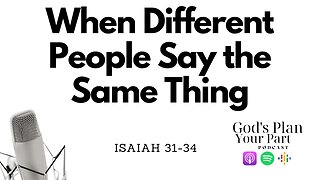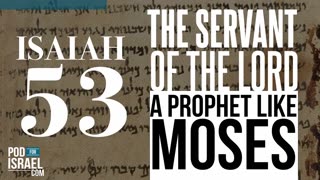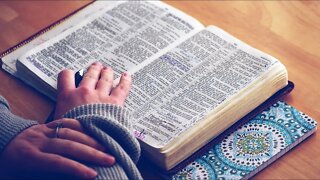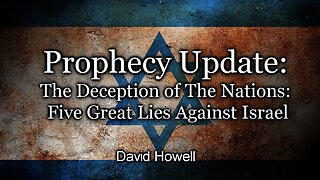Isaiah 28-30 | The Leaders are Liars
In Isaiah 29:21, the prophet exposes the corrupt nature of Jerusalem's leaders, who were exploiting the vulnerable and seeking to persecute the true prophets of God. This context sheds light on the overall situation during Isaiah's time, revealing the moral decay and injustice prevalent among those in positions of power.
Throughout the chapters of Isaiah 28-30, the prophet addresses not only the people's spiritual rebellion but also the failure of their leaders to uphold justice and righteousness. The rulers were taking advantage of the weak and oppressed, disregarding the needs of the poor and needy, and using their positions for personal gain.
In Isaiah 28, the leaders of Jerusalem are likened to drunkards who mock divine wisdom, revealing their arrogance and lack of concern for the welfare of their people. Isaiah highlights their misplaced priorities and warns them of the consequences of their actions.
In Isaiah 29, the prophet exposes their spiritual blindness and inability to understand the deeper truths of God's plans. Despite their outward religiosity, they were unwilling to listen to the genuine prophets of God and were more interested in preserving their positions of authority than in seeking God's will for their nation.
By Isaiah 30, we see the leaders resorting to worldly alliances with Egypt in an attempt to protect themselves from Assyria, rather than relying on God. Their lack of trust in God's providence led them to make poor decisions that would ultimately bring about their downfall.
In this context, the chapters of Isaiah 28-30 serve as powerful warnings to both the leaders and the people, urging them to turn away from their wickedness, seek righteousness, and trust in God alone. The book of Isaiah as a whole emphasizes the importance of social justice, genuine faith, and obedience to God's commands, highlighting the consequences of disregarding these principles.
-
 15:09
15:09
Gods Plan Your Part
11 months agoIsaiah 1-4 | Real Worship
30 -
 10:43
10:43
Gods Plan Your Part
10 months agoIsaiah 31-34 | Different Voices, Same Message
14 -
 23:39
23:39
One For Israel
10 months agoIsaiah 53 The Servant of the Lord a prophet like Moses
13 -
 2:22
2:22
Bible Characters
5 months agoIsaiah: Major prophet, author of the Book of Isaiah
8 -
 1:21:38
1:21:38
Day1335
3 years agoPsalm 68 and Isaiah 18
-
 1:44
1:44
oDDBall daily bible quotes
2 years agoBible Quote Aug 28th Isaiah 26:3
95 -
 1:56:44
1:56:44
Prophecy Update Videos
6 months agoProphecy Update: The Deception of The Nations: Five Great Lies Against Israel
2.04K8 -
 0:52
0:52
Brother Maverick
11 months agoHow Is THIS Appropriate?! | Isaiah 9:16
6 -
 53:26
53:26
Weekly Message
5 months agoWho Was the Prophet Jonah, And Where Did His Loyalty Lie?
59 -
 1:49
1:49
Holy Bible
2 years agoHoly Bible Isaiah 31
208